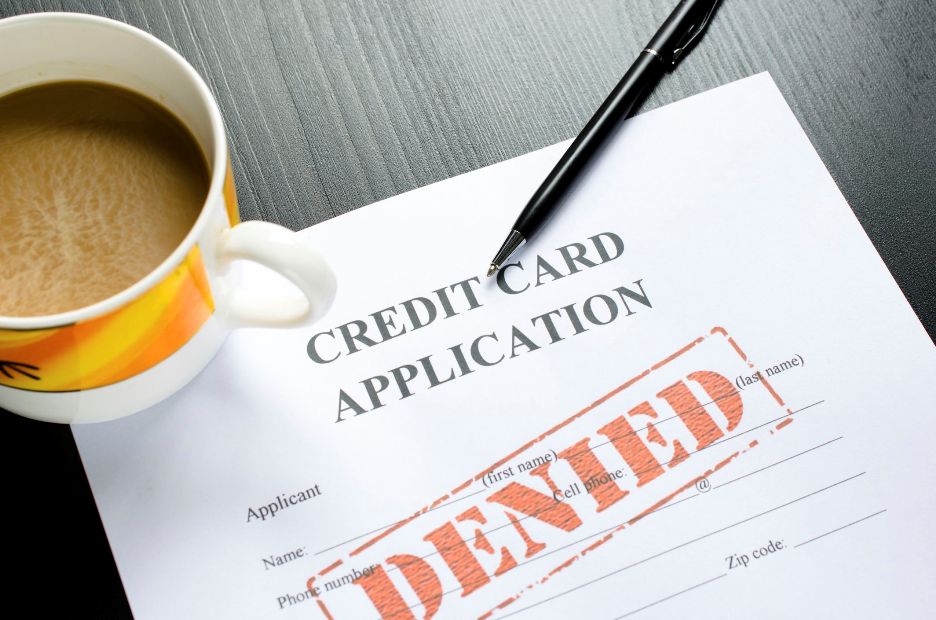What Is a Bad Credit Score? (And What You Can Do About It)
If you're wondering whether your credit score is holding you back, you're not alone. A bad credit score can make it harder to get approved for loans, rent an apartment, or even sign up for a cell phone plan. It’s one of those numbers that quietly shapes your financial options—until it suddenly gets in the way.
In most cases, a bad credit score is considered anything below 580, but that number doesn’t tell the whole story. Your credit score is based on specific behaviors, and understanding what hurts it is the first step toward fixing it.

This article explains what counts as bad credit, why it matters, how it affects your financial life, and what steps you can take to improve your credit score.
What Is Considered a Bad Credit Score?
Your credit score is a three-digit number that tells lenders how risky it might be to lend you money. The lower the score, the more likely lenders think you are to miss payments or default on loans. That’s why having a bad credit score can lead to higher interest rates or even outright rejections.
Credit Score Ranges Explained (FICO and VantageScore)
The two most common scoring models are FICO and VantageScore. Both use a range from 300 to 850. Even though they calculate scores slightly differently, their categories are fairly similar.
For FICO:
- 300 to 579 – Poor
- 580 to 669 – Fair
- 670 to 739 – Good
- 740 to 799 – Very Good
- 800 to 850 – Excellent
For VantageScore:
- 300 to 599 – Poor
- 600 to 660 – Fair
- 661 to 780 – Good
- 781 to 850 – Excellent
These categories help lenders decide whether to approve an application and what interest rates to offer.
What Score Is Considered “Bad” by Lenders?
Most lenders see a score under 580 (FICO) or under 600 (VantageScore) as bad. This usually signals that a person has missed payments, carries high debt, or has other negative marks on their credit history.
Lenders group applicants into credit tiers based on these credit scores. Borrowers with lower scores often face higher interest rates or extra requirements like larger down payments or a co-signer. In some cases, they may be denied credit altogether.
Why Does a Bad Credit Score Matter?
A bad credit score can make many areas of your financial life harder and more expensive. It limits your borrowing options and can lead to extra costs, even outside of loans.
Higher Interest Rates and Loan Rejections
People with bad credit usually face higher interest rates on credit cards, car loans, and mortgages. Some lenders may reject applications outright. Even if approved, borrowers often pay much more over the life of the loan compared to someone with better credit.
Difficulty Getting Approved for Rentals or Utilities
Many landlords check credit scores before approving rental applications. A low credit score can lead to denials or require a larger security deposit. Utility companies may also require deposits or deny service based on credit.

What Causes a Bad Credit Score?
A bad credit score doesn’t happen overnight. It usually builds up from certain financial habits or negative events in your credit history. Knowing what can drag your credit score down is the first step to turning things around.
Missed or Late Payments
Your payment history has the biggest impact on your credit score. Missing payments or consistently paying bills late tells lenders you might not be reliable in repaying debts.
High Credit Card Balances
Carrying large balances compared to your credit limits increases your credit utilization ratio. High utilization can significantly lower your credit score, even if you always pay on time.
Collections or Charge-Offs
If accounts go unpaid for too long, they may be sent to collections or charged off by the lender. These negative marks stay on your credit report for up to seven years and can cause major damage to your credit score.
Short Credit History or Too Many Recent Inquiries
A short credit history gives lenders less information to judge your creditworthiness. Opening multiple new accounts in a short time can also lead to too many hard inquiries, which can lower your credit score temporarily.
Bankruptcy or Foreclosure
Major financial setbacks like bankruptcy or foreclosure have a serious impact on credit scores. While their effect lessens over time, they can stay on your credit report for up to ten years.
How to Check Your Credit Score (For Free)
Keeping track of your credit score is important so you can spot problems early and track your progress as you work to improve it.
Where to Find Your FICO and VantageScore
Many credit card issuers provide free access to your FICO score as a perk. You can also check your credit score through credit monitoring apps like Credit Karma, Credit Sesame, and Experian.
For a full look at your credit history, visit AnnualCreditReport.com to get free copies of your credit reports from the three major credit bureaus. Keep in mind that credit reports usually don’t include your credit score.
How Often You Should Check It
Checking your credit score once a month is a good habit, especially if you’re actively working to improve it. At a minimum, review your credit reports from all three credit bureaus at least once a year to make sure there are no errors.
How to Improve a Bad Credit Score
The good news is that bad credit doesn’t have to last forever. With the right steps, you can start raising your credit score and open the door to better financial opportunities.
Pay on Time, Every Time
Set up payment reminders or automatic payments to make sure you never miss a due date. Consistent on-time payments will gradually improve your credit score.
Lower Your Credit Utilization Ratio
Try to pay down existing balances and keep your credit card usage below 30 percent of your total credit limit. Lower is always better when it comes to utilization.
Don’t Close Old Accounts
Keeping older accounts open helps maintain a longer credit history, which can boost your credit score. Closing accounts can also reduce your available credit, which might raise your utilization ratio.
Dispute Credit Report Errors
Mistakes on your credit report can unfairly lower your credit score. Check your credit reports regularly and dispute any errors you find with the credit bureau reporting them.
Consider a Secured Credit Card or Credit-Builder Loan
If you’re having trouble getting approved for traditional credit, a secured credit card or a credit-builder loan can help you rebuild your credit. These tools give you a chance to show positive credit behavior without requiring perfect credit to start.
Final Thoughts
A bad credit score can feel like a major roadblock, but it doesn’t have to stay that way. Credit scores change based on what you do today and going forward. Even small changes, like paying bills on time or lowering your credit card balances, can lead to steady improvements over time.
It’s easy to get discouraged, especially if past mistakes are still affecting your credit. But lenders care about recent behavior just as much as old history. Focus on what you can control now. Many people see noticeable progress within a few months of making positive changes.
Your credit score is important, but it’s not set in stone. What matters most is the steps you take next.
Frequently Asked Questions
Can I still get a credit card if I have bad credit?
Yes, but your options may be limited. Secured credit cards are designed for people with low credit scores. They require a deposit, but they report to the credit bureaus and can help you build credit when used responsibly.
How long does it take to go from bad credit to good credit?
It depends on your starting point and how consistent you are with credit-building habits. Some people see improvement in as little as three to six months, but reaching “good” credit can take a year or more of steady progress.
Will paying off all my debt immediately fix my credit score?
It can help, especially if high balances were hurting your credit score. But credit scores also look at payment history, length of credit, and other factors. Paying off debt is a strong step, but it won’t erase other issues overnight.
Can I rent a car or book a hotel with bad credit?
Yes, but you may need to use a debit card or provide a larger deposit. Some companies may place a hold on your account or limit your options if they can’t verify your credit.
Does closing a credit card help my credit score if I don’t use it?
Usually not. Closing a card can lower your total available credit and shorten your credit history, both of which can hurt your credit score. If there’s no annual fee, it’s often better to keep the account open and unused.



